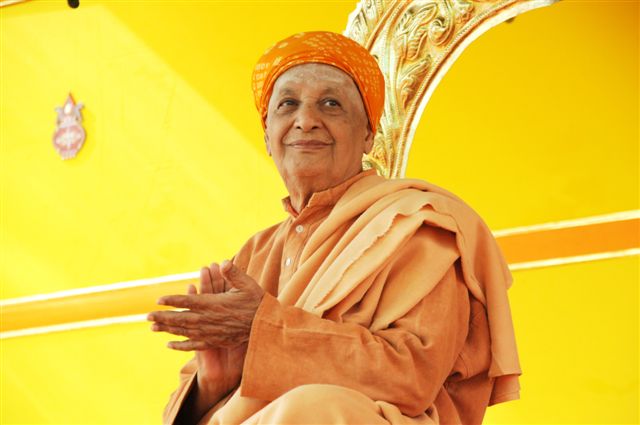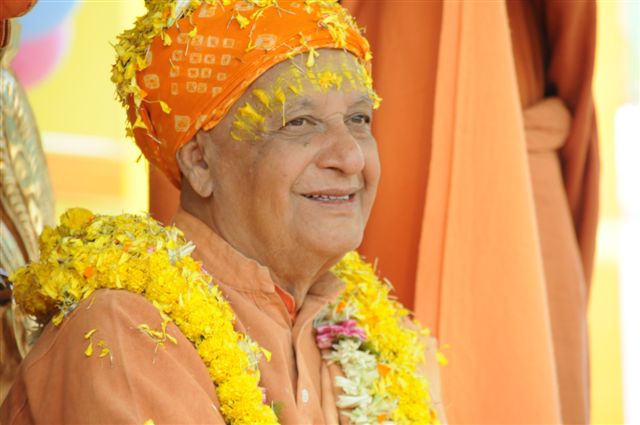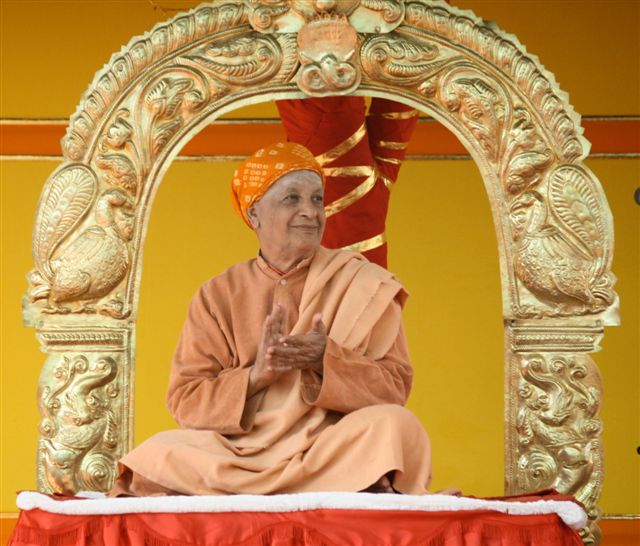Swami Satyananda Saraswati
We who have enough of everything should develop the philosophy of atmabhava in our lives. That is the philosophy of Vedanta: you and I are the same. It is written in Vedanta, in the Upanishads, that all of us, living or dead, are part of the universal soul which resides within all of us. It is very easy to say that, but in actual practice we do not follow that tenet. In practice ‘I’ is separate from ‘you’. The feeling of oneness comes when you can feel that all those who live around you have the same soul or are part of the same soul that is within you and that their sorrow and pleasure are your own sorrow and pleasure. It may not be possible for me as a human being to share all the difficulties of my neighbours, but certainly I should have the quality to feel that. One person cannot wipe out the pain of everyone in the world. But there should be the feeling that if your child is sick, I should feel the pain that you feel for your child, or for that matter the pain of your friends, wife, daughters and neighbours, in the same way as I would for my own kith and kin. This is very important. The sayings of the Upanishads will not be true until one practises that. It is no use saying that everyone is myself. You should feel that everyone is yourself, then you will feel their problems.
I’m not saying that we should pay for their education, although it would be good to do so, but at least they should have two square meals a day for their children. There are millions of families in this world whose children do not have two square meals a day. There was a driver with this ashram who stayed with us for two or three years. Then we arranged an auto rickshaw for him and now he is self-sufficient and earns his own living of one hundred rupees a day. It is the duty of each one of us, be it the ruler or the ruled, to see that no one is deprived of this basic minimum need.
Live for the pleasure of others
One should live and do for the pleasure of others. You all know this, as you live for the well-being of your children, but at times people forget, It is not wrong to live for your own well-being, but you should not forget the well-being of others. You should take care of their well-being along with your own. The poverty-stricken outnumber the affluent. We cannot help all the poor, but at least we should all be aware of our duties to the downtrodden. This is a fact of life which you must all understand.
If this society cracks and breaks, then there will be chaos. Therefore, it becomes our duty, your duty, everyone’s duty, to sustain this society. Society does not depend on us. We are the load, not the load-bearers. We are a burden on society, not the bearers of the burden. It is our duty in every society – Eastern or Western, African, Chinese or Russian – to care for the common folk, because their needs are very few. The oxygen, food and water they consume in one year, an American or European consumes in one second. So you can understand how economical they are for our existence, for our society. The villagers have been receiving prasad since I came to Rikhia. We all have a duty, a compulsory obligation to look after the common people, the supports of society.



